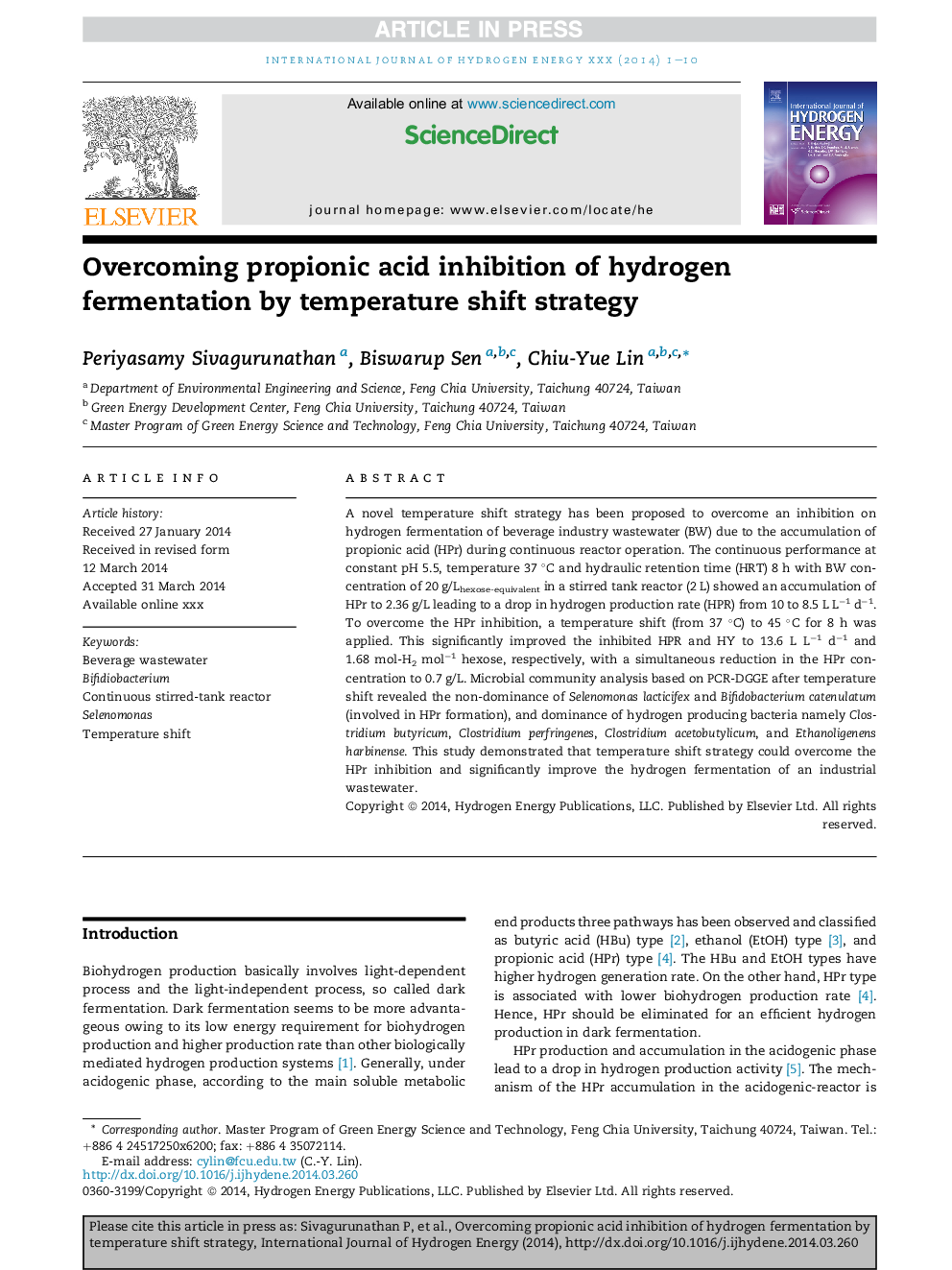| Article ID | Journal | Published Year | Pages | File Type |
|---|---|---|---|---|
| 7717776 | International Journal of Hydrogen Energy | 2014 | 10 Pages |
Abstract
A novel temperature shift strategy has been proposed to overcome an inhibition on hydrogen fermentation of beverage industry wastewater (BW) due to the accumulation of propionic acid (HPr) during continuous reactor operation. The continuous performance at constant pH 5.5, temperature 37 °C and hydraulic retention time (HRT) 8 h with BW concentration of 20 g/Lhexose-equivalent in a stirred tank reactor (2 L) showed an accumulation of HPr to 2.36 g/L leading to a drop in hydrogen production rate (HPR) from 10 to 8.5 L Lâ1 dâ1. To overcome the HPr inhibition, a temperature shift (from 37 °C) to 45 °C for 8 h was applied. This significantly improved the inhibited HPR and HY to 13.6 L Lâ1 dâ1 and 1.68 mol-H2 molâ1 hexose, respectively, with a simultaneous reduction in the HPr concentration to 0.7 g/L. Microbial community analysis based on PCR-DGGE after temperature shift revealed the non-dominance of Selenomonas lacticifex and Bifidobacterium catenulatum (involved in HPr formation), and dominance of hydrogen producing bacteria namely Clostridium butyricum, Clostridium perfringenes, Clostridium acetobutylicum, and Ethanoligenens harbinense. This study demonstrated that temperature shift strategy could overcome the HPr inhibition and significantly improve the hydrogen fermentation of an industrial wastewater.
Related Topics
Physical Sciences and Engineering
Chemistry
Electrochemistry
Authors
Periyasamy Sivagurunathan, Biswarup Sen, Chiu-Yue Lin,
